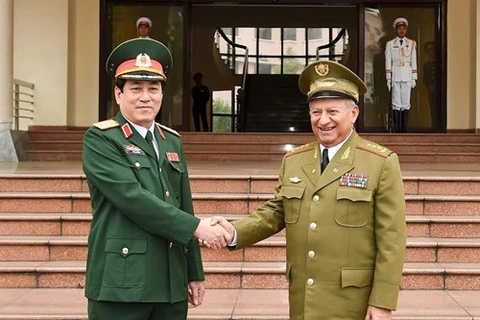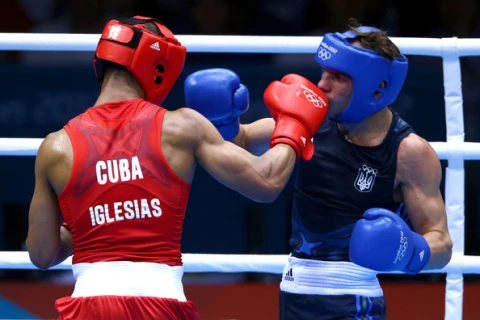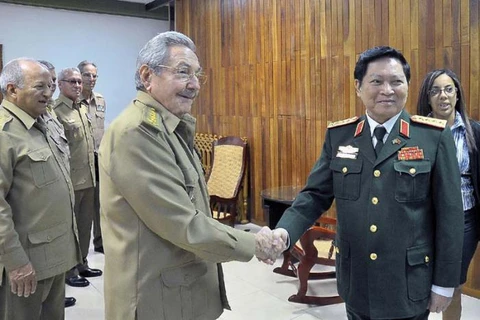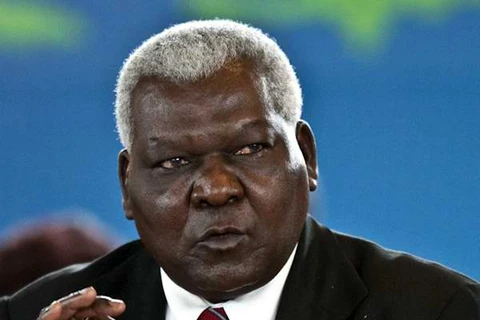Hanoi (VNA) – The upcoming official visit to Vietnam by Chairman of the Cuban National Assembly Esteban Lazo Hernandez from June 11-18 demonstrates the desire of the two countries to enhance their special traditional relations, solidarity and comprehensive cooperation.
Since Vietnam and Cuba established diplomatic ties in December 1960, the bilateral relations have been incessantly reinforced and developed.
Fidel Castro was the first and only foreign leader to visit the southern liberation area of Vietnam in 1973, when the war was still going on.
Cuba was also the first Latin American country and one of the first nations in the world to recognise the National Liberation Front of South Vietnam.
After the wartime, Cuba still stood side by side with Vietnamese people in the cause of national reconstruction and development, helping the Southeast Asian country to build transport infrastructure, develop animal husbandry and train human resources in the fields of agriculture, construction, architecture, medicine, and social sciences.
Promoting that special tradition, Vietnamese and Cuban leaders and peoples have spared no efforts to deepen the bilateral relations via regular high-level visits and implementation of cooperation mechanisms such as the inter-governmental committee, the Parties’ theoretical workshop, the foreign ministries’ political consultation, and the defence-security dialogue.
Both nations have also maintained coordination and mutual support at international organizations and multilateral forums, especially at the United Nations.
Regarding the parliamentary relations, the Vietnamese National Assembly regularly sends delegations to Cuba.
Since Vietnam and Cuba established diplomatic ties in December 1960, the bilateral relations have been incessantly reinforced and developed.
Fidel Castro was the first and only foreign leader to visit the southern liberation area of Vietnam in 1973, when the war was still going on.
Cuba was also the first Latin American country and one of the first nations in the world to recognise the National Liberation Front of South Vietnam.
After the wartime, Cuba still stood side by side with Vietnamese people in the cause of national reconstruction and development, helping the Southeast Asian country to build transport infrastructure, develop animal husbandry and train human resources in the fields of agriculture, construction, architecture, medicine, and social sciences.
Promoting that special tradition, Vietnamese and Cuban leaders and peoples have spared no efforts to deepen the bilateral relations via regular high-level visits and implementation of cooperation mechanisms such as the inter-governmental committee, the Parties’ theoretical workshop, the foreign ministries’ political consultation, and the defence-security dialogue.
Both nations have also maintained coordination and mutual support at international organizations and multilateral forums, especially at the United Nations.
Regarding the parliamentary relations, the Vietnamese National Assembly regularly sends delegations to Cuba.
Most recently were the visits to Cuba by NA Vice Chairwoman Tong Thi Phong in February 2017 and a NA specialized group in March 2017.
A Vietnamese delegation led by NA Chairwoman Nguyen Thi Kim Ngan attended the funeral of Cuban leader Fidel Castro in November 2016.
The two legislatures also established friendship parliamentarians’ groups.
Along with sound political relations, the bilateral economic-trade ties also received due attention. Two-way trade reached 247.64 million USD in 2016. Currently, Vietnam is the second largest trade partner of Cuba in Asia. Vietnam mainly exports rice, coal, chemicals, garment-textile and computers to Cuba while importing pharmaceutical products from the market.
Vietnam helped Cuba implement a rice farming project in 2011-2015, which yielded good outcomes, as did some projects in cultivating maize, soybean and developing aquaculture. The two sides will consider more agriculture-fisheries joint projects in the coming time.
Along with sound political relations, the bilateral economic-trade ties also received due attention. Two-way trade reached 247.64 million USD in 2016. Currently, Vietnam is the second largest trade partner of Cuba in Asia. Vietnam mainly exports rice, coal, chemicals, garment-textile and computers to Cuba while importing pharmaceutical products from the market.
Vietnam helped Cuba implement a rice farming project in 2011-2015, which yielded good outcomes, as did some projects in cultivating maize, soybean and developing aquaculture. The two sides will consider more agriculture-fisheries joint projects in the coming time.
Over the past few years, the Vietnamese government has encouraged and created the most favourable conditions for the two countries’ businesses to expand cooperation.
More Vietnamese firms are keen to explore investment opportunities in Cuba. The Latin American country is calling for Vietnamese investment in food production, oil and gas exploration and mining, industry, tourism, bio-technology, and priority fields at the Mariel special economic zone.
Both nations also hope to boost cooperation in telecommunication, defence-security, education-training, culture-medicine, and science-technology.
During the trip to Vietnam, the Cuban parliamentary delegation wants to study the role, functions, apparatus and activities of the Vietnamese legislature, especially of the NA Standing Committee, as well as share experience in renovation and national development.-VNA
Both nations also hope to boost cooperation in telecommunication, defence-security, education-training, culture-medicine, and science-technology.
During the trip to Vietnam, the Cuban parliamentary delegation wants to study the role, functions, apparatus and activities of the Vietnamese legislature, especially of the NA Standing Committee, as well as share experience in renovation and national development.-VNA
VNA

























